Even though the medium of film is over a hundred years old, preservation efforts didn’t start until 29 years ago with the National Film Registry — you’d be surprised how much we’ve risked losing in video games. Unlike film however, the attention for conserving games within the video game industry is still in its infancy, and as a result, there are a lot of titles out there that are afflicted with scarcity in their numbers — as a result they have ballooned their value in the market.
Enthusiasts struggle with the grim reality that your wallets are going have to be pretty deep if you’re looking to be a purist, so the alternatives are limited to either official re-releases of the classics, or emulation. The “e” word has gotten less dirty over the years (thanks largely in part to the efforts of Frank Cifaldi) but that doesn’t stop it from being any less salacious — at least to the people who want to boast about a $75 price tag they got away with on the Twisted Tales of Spike McFang on Instagram.
As the fever pitch for authentic software gets closer to the tipping point, a loophole of artificial software in the form of reproduction titles have recently surfaced, and I find it ironic that this method isn’t subjected to the ethical scrutiny that emulation is.
Why is that? Think about it; when you boot up an emulator and load a ROM on it, you know exactly what you’re getting into there, but when you finally get that copy of Twisted Tales of Spike McFang delivered to you, you’re risking the chance of receiving a costumed donor-cartridge in disguise.
It’s a valid concern, but not one that warrants damnation from the public — reproductions can exist if we have some more accountability about it.
The Fakers
Generally, when the subject of retro video games comes up, even for the people who are in the know, the topic of identifying what games are real and what’s fake doesn’t garner a whole lot of focus. The perception around the idea is that bootlegs are majorly conspicuous as all hell the moment you encounter one, so there’s no need for a discussion on the analysis on a game’s legitimacy. That’s just not the case anymore.
You can visit just about any retro video game centric convention or swap market throughout the year, spotting more fakes behind glass cases that you can count on your hands, and these phonies are being peddled for the same asking prices that the real McCoy’s are. As such, the Reseller market is flooded with these carbon copies, and the principles used to justify the existence of reproduction commercial titles are blurred by the hardship of accessibility to some particular pieces of software.
More often than I would like to admit, I have to make recurring peace with the fact that I will never be able to defend a purchase of Legend of Hero Tomna for the Turbo-Grafx 16 — as a reasonable middle-class adult. The IREM-developed side-scroller is currently fetching a cost of $1,300 or more on all secondhand marketplaces, and the PC Engine import valuing over a couple hundred dollars isn’t much better. Sure I can go download the game right now on an emulator, or buy it for $10 on Nintendo’s Virtual Console while the shop channel is still accessible on my Wii U, but I’ll never be able to play the game the way I was MEANT to be played — unless I succumb to a really irresponsible financial decision.
Enter tg16pcemods.com, a site ran by a group of enthusiasts who share that same sentiment, and want to do something about it without any sort of delusion around the service they’re trying to provide. For the price of $40, your space bucks will earn you a painstakingly detailed imitation of the original HUCard, it’s meant to represent with a finish that’s evidently handcrafted with love. Some of the key differences here in what the people at TG16PCEMods do and the aforementioned resellers is the degree of transparency.
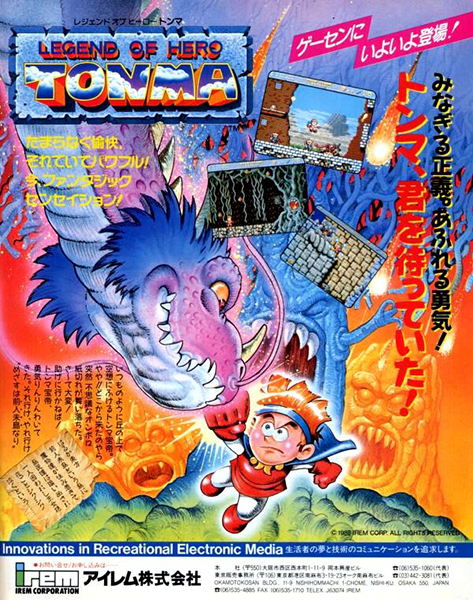 The recreation of the HuCards only extend so far as you’re given the game on a Turbo Chip that’s a wildly different color than what the original was sold on, and then there’s the disclaimer on the back that clearly labels it as a reproduction game in case the point needed to be any clearer.
The recreation of the HuCards only extend so far as you’re given the game on a Turbo Chip that’s a wildly different color than what the original was sold on, and then there’s the disclaimer on the back that clearly labels it as a reproduction game in case the point needed to be any clearer.
Pellucidity aside, the argument is still a tricky one to make within the sub-culture around the Turbo Grafx/PC Engine considering that a large scope of their devotion stems out of their pure love for the nuance and design for the original hardware, software, and peripherals of that brand. Selling the idea that anyone can get it on the fandom by means of a facsimile can be a bit insulting to outspoken aficionados. Just imagine an exchange between a married couple who pooled together $5,000 to buy Magical Chase with the dude who casually dropped forty bucks to play it on the Retro Freak they picked up from Play Asia. The suggested elitism that permeated that last sentence alone is pretty intense, and a real life scenario would just be another sad representation of the video game community as a whole.
It’s a really awkward line to draw when you want to advocate for both schools of thought, but I think the tempers from both camps are pared when it comes to reproduction releases that offer a second chance to vaporware, or modifications that reinvent the experience altogether.
The Makers
I personally endorse that one of the most exciting things about retro gaming is getting to expose someone to a game that they have never seen or heard of before; a game that has completely escaped their childhood and introduced to them for the first time as if it were a time capsule. While those moments have led to some really heartfelt moments between friends and family, there have also been some moments where my attempt to bond with someone else over an old game has been less than stellar.
I mean, those moments will happen, and that’s ok, but the reproduction movement has led to some really inspiring creations that have the potential to close some of those gaps.
Let’s remember back to that story about a father named Mike Mika who introduced video games, both old and new, to his younger daughter, and one game they shared a love for in particular was Donkey Kong. It only took one question out a 3-year-old girl for Mike to work on reinventing the conceit of Nintendo’s arcade hit because his little girl challenged the roles of Mario and Pauline played in the fight against the ape. Now, “reinvent” may seem like a really hyperbolic statement considering that it’s ostensibly the exact same game, but it also isn’t; it’s a game where the concept of “damsel in distress”
and all of the archaic implications surrounding it are thrown out in favor of epic born out of the simple human condition known as heroism. Reconfiguring some lines of code, and slapping it onto a new EPROM chip allowed a little girl to celebrate Pauline as a hero, not a victim, and that’s all it takes at times for someone to connect with a game the way people around you did on the same machine.
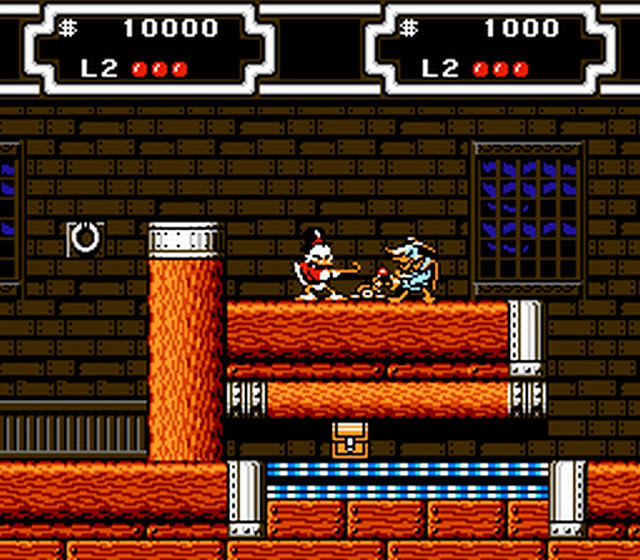 Another instance is much closer to home, when I recently watched the trailer for Disney Afternoon Collection with my girlfriend. After explaining my love for the games included in that bundle to her, I sat her down and plugged in the original NES version of Ducktales for her to play. She saw the appeal of it, but wished it had some kind of mode that let me play it with her because she enjoys video games more that way. I thought about what she said, and decided to do some digging on the web, and that’s when I came across Ducktales 2 Player: a ROM hack of Ducktales 2 that adds in a cooperative two-player mode where second person can join in as Darkwing Duck.
Another instance is much closer to home, when I recently watched the trailer for Disney Afternoon Collection with my girlfriend. After explaining my love for the games included in that bundle to her, I sat her down and plugged in the original NES version of Ducktales for her to play. She saw the appeal of it, but wished it had some kind of mode that let me play it with her because she enjoys video games more that way. I thought about what she said, and decided to do some digging on the web, and that’s when I came across Ducktales 2 Player: a ROM hack of Ducktales 2 that adds in a cooperative two-player mode where second person can join in as Darkwing Duck.
Someone out there, took simultaneously their fandom of the Disney classic and the NES to a new level (pun intended) by ingeniously ripping the sprite of the Caped Canard from his respective NES game, and adding into the framework of Ducktales with Scrooge and gang in a way that could almost be presented like a DLC add-on.
Needless to say, it’s really fun, and I don’t know if I can go back to playing my original copy of Ducktales 2 now that I have this new way to play it that I never had before.
I can imagine a number of you saying that an emulator could have easily done what I did with a cartridge, and to that I’d say that you’re wrong.
The art of reproduction game is in the very name of it; it’s a super emulator in a sense as it not only emulates the software aspect of the game, but the experience of holding it in your hand on cartridge with its own artwork, that’s capable of running on a console just like any other game in your collection. Reproduction video games can essentially synthesize the same kind of feelings you would get out buying and holding a “real” game.
There are gamers who’re divided on that fact, with some actively celebrating the avenue, and others loudly condemning it, and I personally find myself in the middle. For every bootleg Little Samson, there’s a tribute to Bio-Force Ape—there’s going to be a counterfeit or fake in any hobby you participate in, but not many of them can claim that those same methods genuinely help the accessibility or preservation of that medium as well, just something to chew on.

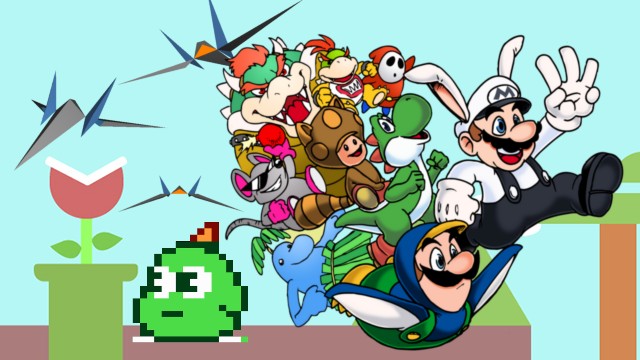
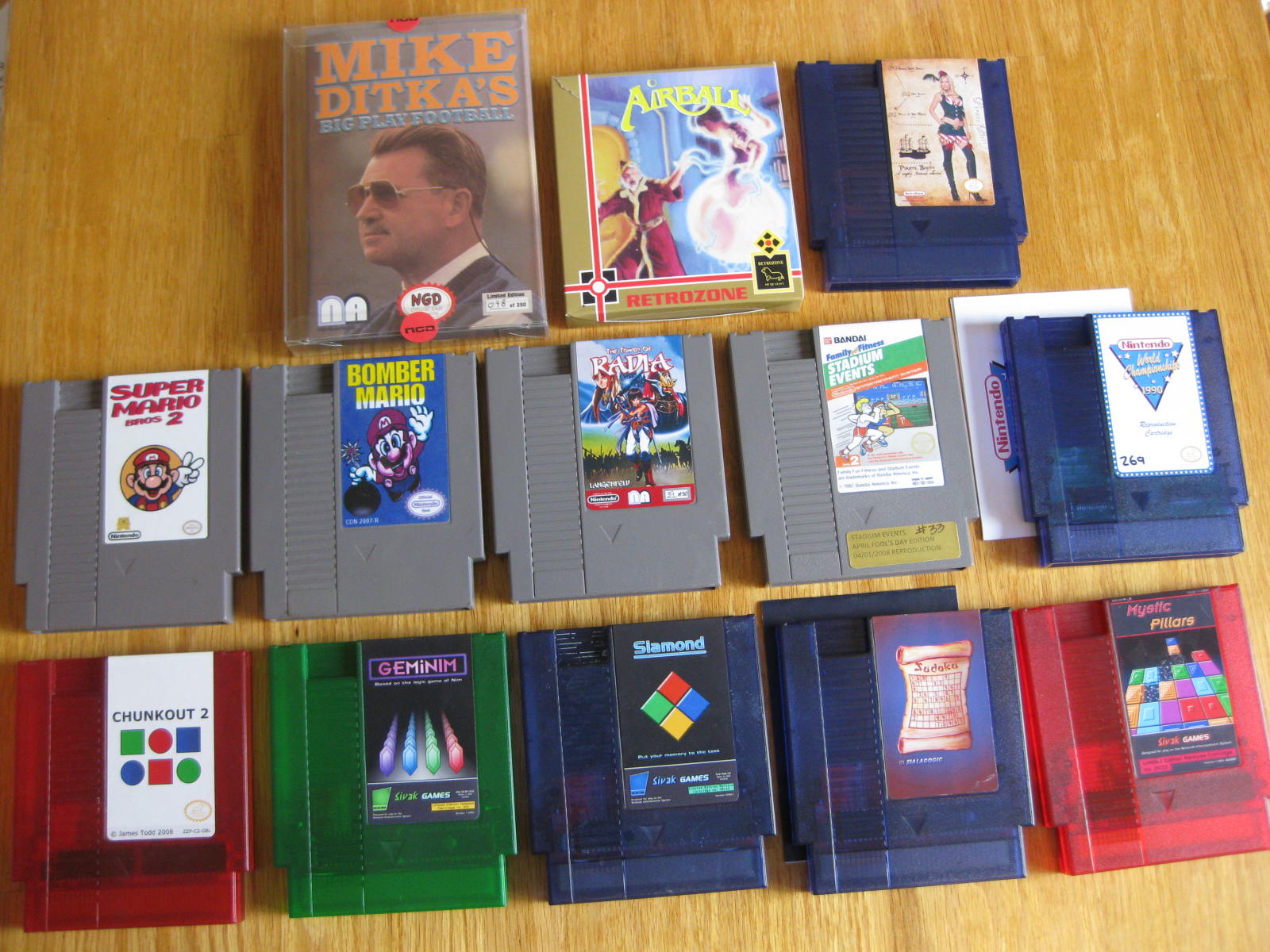
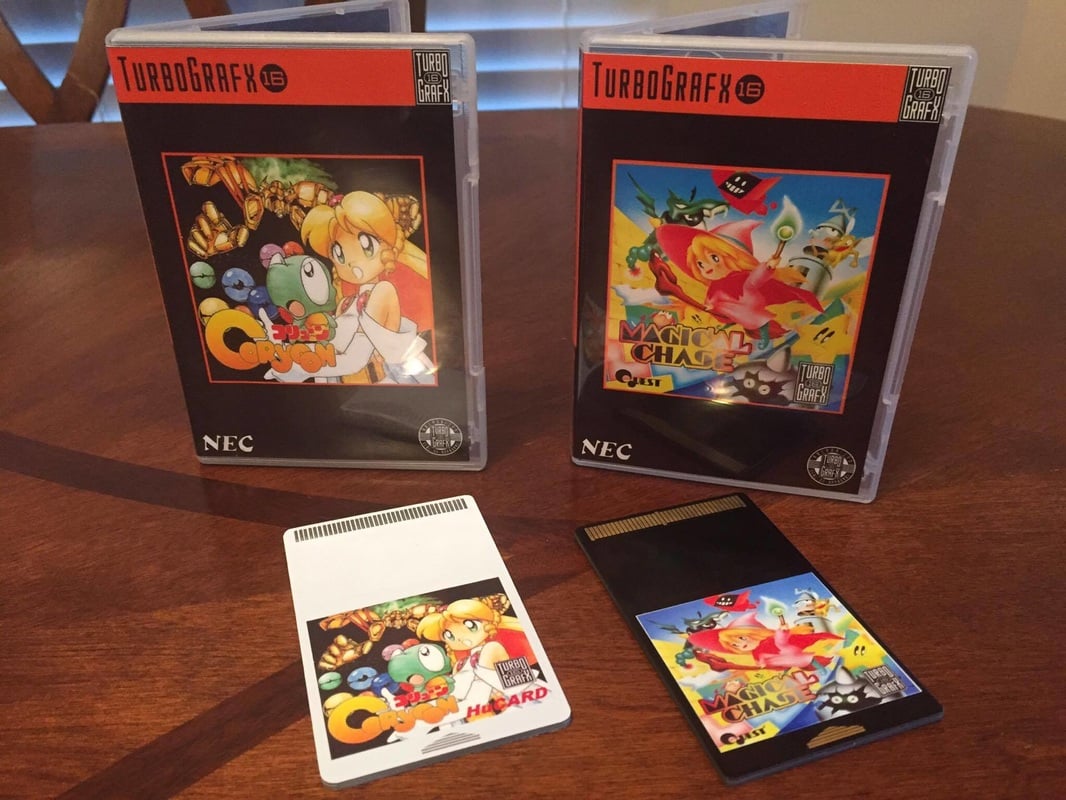
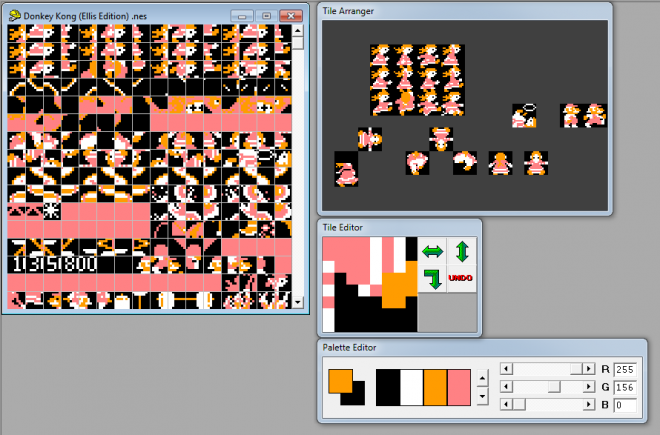
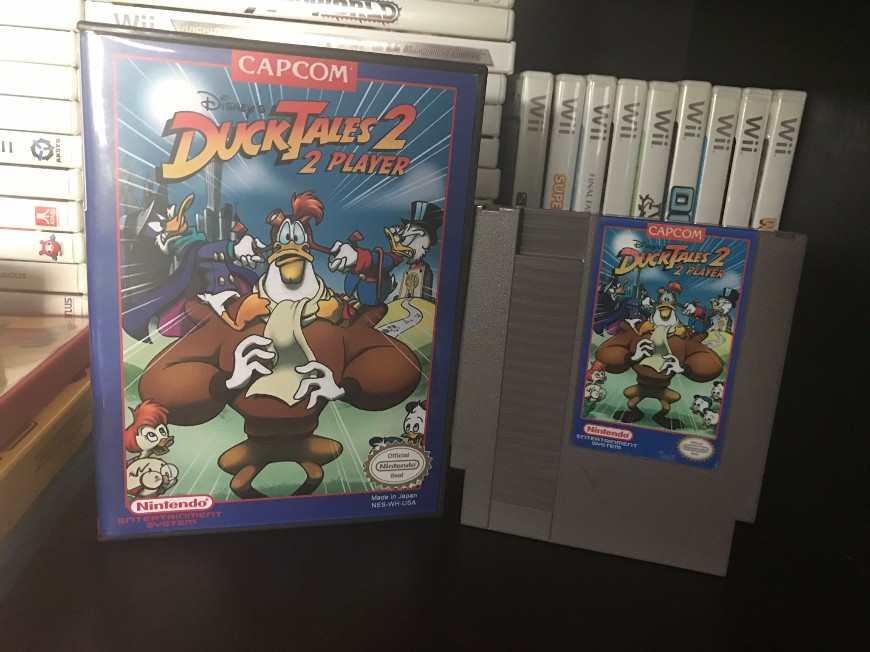





Published: Mar 25, 2017 04:26 pm